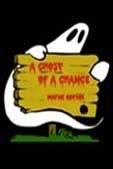ORDINARY DAYS
 Last Sunday was Pentecost, and I worshiped at Good Shepherd Lutheran Church in Hernando, Florida. If you live in that area or happen to be visiting, join them on a Sunday. There is worship creatively done in the Lutheran tradition and sound preaching from Pr. Kenneth Blyth. This past Sunday happened to be the congrega- tion’s 30th anniversary so Bishop Robert Schaefer was the preacher. You can always count on a good sermon from him as well. There was one sad moment for me when the Paschal candle was extinguished. For those unfamiliar with the custom, the Paschal candle is a very large candle lit for the first time at the Easter Vigil and then at each service during Easter. Pentecost is the end of the fifty days of Easter. Monday marks the return to ordinary time.
Last Sunday was Pentecost, and I worshiped at Good Shepherd Lutheran Church in Hernando, Florida. If you live in that area or happen to be visiting, join them on a Sunday. There is worship creatively done in the Lutheran tradition and sound preaching from Pr. Kenneth Blyth. This past Sunday happened to be the congrega- tion’s 30th anniversary so Bishop Robert Schaefer was the preacher. You can always count on a good sermon from him as well. There was one sad moment for me when the Paschal candle was extinguished. For those unfamiliar with the custom, the Paschal candle is a very large candle lit for the first time at the Easter Vigil and then at each service during Easter. Pentecost is the end of the fifty days of Easter. Monday marks the return to ordinary time. People at most liturgical churches don’t notice the change until the green paraments appear. Here in Florida we can see the signs of ordinary time by the departure of the snowbirds for the north. Parish life settle back to a routine only interrupted by the explosion called Vacation Bible School.
Since I follow Benedictine Daily Prayer, I suddenly stumble into the midst of Job in the Office of Readings for the eighth week in ordinary time. Ugh! I know Job is supposed to be a great existentialist work which some Biblical scholars have spent a lifetime studying, but I just want to get through it in a hurry. I once summed up the book of Job this way: “A decent man has whole life fall apart. His ‘friends’ come by to tell him what his problem is. He complains to God who tells him ‘who do you think you are?’ And they all lived happily ever after.” I know that’s not what it’s really like, but it’s just never been something that grabbed my attention.
Years ago renown preacher Edmund Steimle worte a sermon titled “The Peril of Ordinary Days.” I don’t have the book the sermon was in. (I foolishly loaned it to someone who lost it.) I do remember the gist, however. The greatest threat to faith is not when things are very difficult, but rather when they are running along in their usual routine. We take God for granted when everything is going along just so.
As much as I admire Steimle, I am only partially persuaded by him. I have seen so many people who crumble under adversity. That’s something that goes back to the old days of martyrdom. We read about people who faced the most terrible of situations and remained faithful, but you read between the lines and realize there must have been a good many people who caved under pressure. There was a big debate in the early church over whether to let the lapsed back into the fold after they had given up the faith. Fortunately, most of the church decided on forgiveness There are people who flourish during ordinary days.
I can also see Steimle’s point. Every church has seen people just drift out the backdoor as we say. They start missing a Sunday here and there and then vanish all together. It’s hard to win these people back, because they have discovered they can do very well without the church. They will tell you they haven’t lost their faith, they’ve just gotten out of the habit of worshiping. In fact, some will tell you they don’t need any of that “formal worship stuff.” They can manage just find praying on their own at the beach or the gold course, except they really don’t pray at the beach or the golf course. They don’t give God much thought one way or another.
They are right, however, about getting out of the habit. Worship of God ought to be habitual. I know people who would get bent out of shape by that comment. They insist that we should only worship God out of conviction, not habit. I can tell you, though, habit gets you through a lot of hard times when conviction is pretty weak.
For years I have tried to emphasize the importance of persistence for young people, especially teenagers. If you want to get on in life, you have to be persistent. You have to show up and do your part whether it’s exciting or boring, whether it is easy or hard. I remember hiring a teenager to clean the church. He lasted about six weeks and quit. “Every week it’s the same. I clean the floors and throw out the trash and next week I have to do it again.” That’s true for most of life. It’s true for worship. You praise and thank God on Sunday and next Sunday come back and do it again. And if you’ve got that down right, it’s what you will do for eternity.
Persistence is a virtue, and all virtues are matters of habit. They get you through the ordinary days. It’s like a journey: one step after another until you get to your destination. If you quit, you never make it.
May the Lord bless you on your journey and greet you on your arrival.
Wayne
The picture is from Gloria Dei Lutheran Church, St. Paul. Lighting a paschal is a nightmare for any acolyte under 6'8" tall.
Labels: Ordinary time, Paschal Candle, Pentecost












